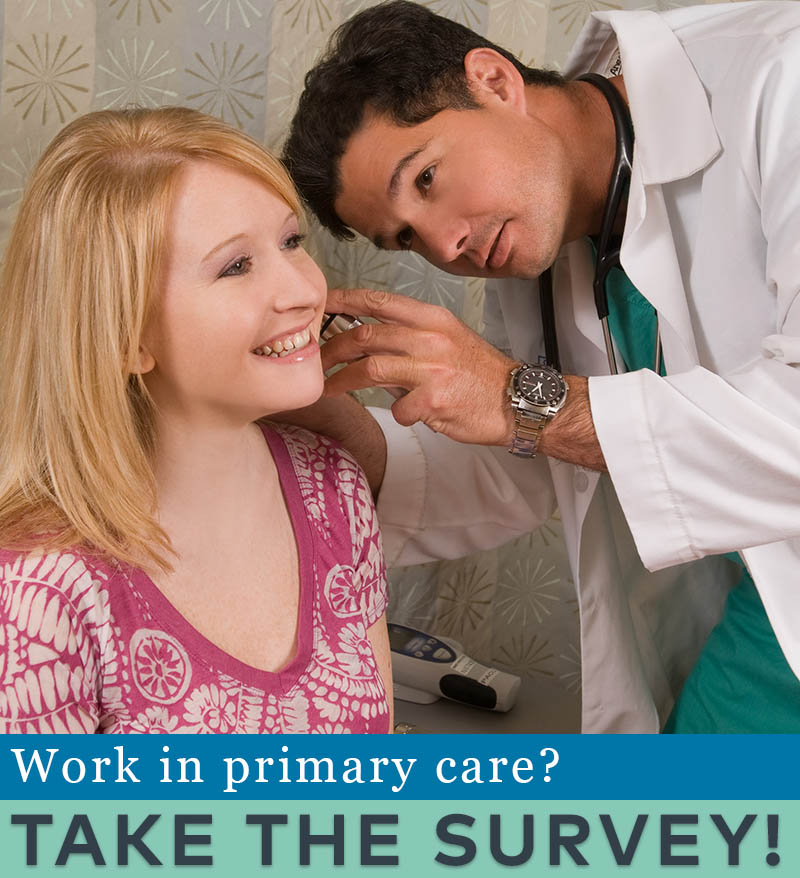You are looking at an archived version of our site. Please visit thepcc.org for a fresh, new experience!
You are here: Array » Eighty-Six Percent of ...
Eighty-Six Percent of Primary Care Patients Believe Racism is Impacting Their Health
WASHINGTON (June 10, 2020) – The Larry A. Green Center, in collaboration with the Primary Care Collaborative (PCC) and 3rd Conversation, today released new data showing that a staggering 86 percent of Americans believe racism is impacting their physical, psychological and/or emotional health. The survey, which reached a nationally representative sample of more than 1,100 primary care patients, along with a companion survey of close to 600 clinicians, revealed both patients and care providers view racism as a public health issue.
These findings come at a time when the national conversation is focused heavily on racial injustice in the United States and shed light on a new setting where conversations about racism’s impact can and should be held: the doctor’s office. In fact, one in five primary care clinicians says that the death of George Floyd has been a topic of conversation with patients when it comes to their health, and more than 40 percent of clinicians say it has been raised as a topic of concern across patients of all demographics. What’s more – it is impacting provider wellbeing. More than 30 percent of clinicians report feeling distressed about George Floyd’s death.
“The data from this week’s survey are at once startling and heartening – shedding light on the incredible impact racism may be playing on our health, while presenting a potential prescription to help guide the conversation and support those in need,” said Rebecca Etz, PhD, co-director of The Larry A. Green Center and associate professor of Family Medicine and Population Health at Virginia Commonwealth University. “As patients are turning to their primary care providers for support, we must ensure that clinicians receive the same level of support from the U.S. healthcare system to allow them to continue this critical work in providing patient care.”
The survey was conducted by The Larry A. Green Center as part of an ongoing series looking at the attitudes of primary care clinicians and patients over the course of the COVID-19 pandemic. This week’s data also showed that more than two months into the COVID-19 pandemic, nearly half of practices are still without PPE, and nearly 40 percent have had to lay off staff members.
“Both public and private policymakers must take immediate steps to stabilize primary care,” said Ann Greiner, President and CEO of the Primary Care Collaborative. “This financial support is necessary but not sufficient. Instead, we need wholesale reform of payment in order to achieve the kind of high-performing primary care that truly meets patient needs.”
“The fact that so many patients and clinicians agree that racism is a driver of health points to the incredible role primary care plays in creating safe spaces to process deep societal and personal issues,” said Christine Bechtel, patient advocate and co-founder of 3rd Conversation, a community of patients and providers. “Primary care clinicians can be the cornerstone of physical, mental and emotional health for so many Americans -- not in spite of, but especially during, these difficult times. Our leadership must ensure this priceless resource is available to all Americans - now more than ever - through effective policies that ensure the long-term viability of primary care.”
The survey of clinicians was fielded June 5-8, 2020, and received 586 responses from clinicians in 48 states and Washington, D.C. 68 percent of respondents identified their practice as family medicine, 17 percent as internal medicine, 10 percent as pediatrics, 2 percent as geriatrics, and 3 percent as other.
The patient survey was conducted online on June 8, 2020, and was open to people 18 or older. The survey results reflect input from 1,100 respondents from a range of education levels (37 percent high school degree, 29 percent four-year college degree, 18 percent graduate degree or higher and 16 percent classified as other); income levels (43 percent less than $50,000 household income, 7 percent greater than $150,000 household income); and geographies (29 percent urban, 53 percent suburban and 18 percent rural). One-third of respondents consider themselves part of a minority group.
###
Visit PCC’s website for executive summaries of the surveys.
Experts are available to provide insight and comment on the survey. If you would like to speak with them, please contact:
- Stephen Padre, spadre@pcpcc.org, 202-417-3911
- Maureen Abel, mabel@brgcommunications.com, 443-631-5090
The surveys are conducted weekly with an aim to measure the impact of COVID-19 on primary care practices, clinicians and patients. Results are reported on the websites of PCC and the Larry A. Green Center.

Are you a physician, nurse practitioner, or PA working in primary care?
Help PCC and the Larry A. Green Center track how your practice is responding to the COVID-19 outbreak by completing the Green Center's occasional survey.
The regular surveys are no longer being conducted.
COVID-19 Updates
Maggio 9, 2022 | Primary Care Collaborative
Aprile 19, 2022 | Primary Care Collaborative
Aprile 19, 2022 | Primary Care Collaborative
Marzo 7, 2022 | STAT
Febbraio 27, 2022
- 1 di 39
- seguente ›
Recent News
Agosto 16, 2024
Agosto 12, 2024
Luglio 16, 2024
Giugno 24, 2024
May webinar highlights: “The Commercial Market: Alternative Payment Models for Primary Care” Nate Murray explains w… https://t.co/KX9Wi2w6oY —
2 anni 8 mesi fa
@CMSinnovates’ primary care strategy is rooted in a 2021 @theNASEM’s report which called #primarycare “foundational… https://t.co/glbPxvCysg —
2 anni 8 mesi fa
@CMSinnovates has a new #primarycare strategy, envisioning “ACO-based primary care model tests that may focus on pr… https://t.co/aJGF1z411l —
2 anni 8 mesi fa
- Page 1
- ››
Menu secondario
Copyright © 2024 Primary Care Collaborative




